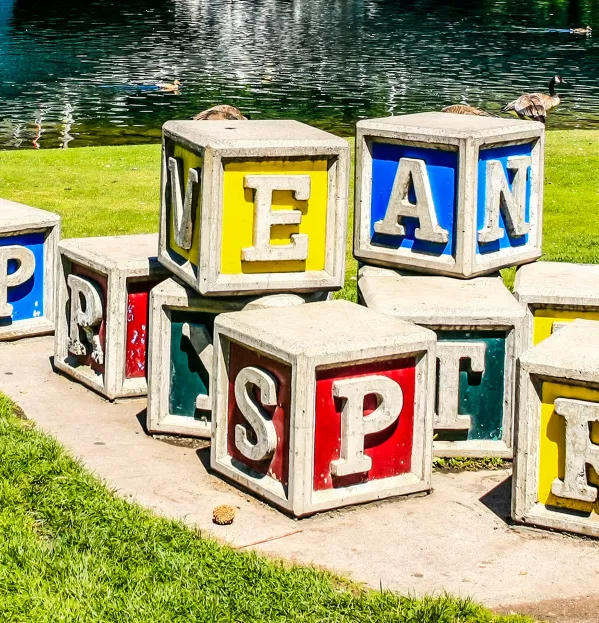- Home
- Teaching & Learning
- Secondary
- What’s the role of phonics in secondary school?
What’s the role of phonics in secondary school?

Reading - and phonics specifically - often generates strong opinions, but there is one thing that people tend to agree on: just about every child can learn to read effectively.
This consensus is put to the test in secondary schools, which must rapidly boost some pupils’ literacy while ensuring they can still access the curriculum.
Teachers are often told what the research says when considering how to meet this challenge, but research doesn’t speak for itself; we, as teachers, need to interpret it.
More teaching and learning:
- GCSE: How to teach students to give insightful answers
- Ask the expert: How to build a strong curriculum
- Is this the best way to teach writing in KS3?
Through my research school role, I have supported lots of secondary teachers grappling with these challenges, and I’ve found that focusing on five questions can help guide our thinking about phonics.
1. Is phonics the challenge?
Reading is complex and phonics is just one part of it: not every struggling reader struggles with phonics.
Without key stage 2 Sats, I have seen an increasing interest in reading assessments in secondary schools. These assessments can help us to unpick the different components of reading but, unless we can make sense of the results, they can be an expensive waste of time.
Unfortunately, secondary teachers have rarely received appropriate training in this area. I used to assume that English teachers had, but their expertise tends to be in literature, not in how reading first develops.
Therefore, the Education Endowment Foundation’s literacy guidance reports, and this excellent academic paper, are good places to learn more.
2. What previous teaching have pupils experienced?
For struggling readers, we need to know what has been tried before, to inform what to do next.
The emphasis on phonics in English primary schools has increased dramatically since 2010, which makes the existing evidence less relevant to pupils who didn’t respond well to phonics teaching.
Even in recent research, older, struggling readers were often receiving systematic phonics teaching for the first time, particularly in studies outside of England. At best, these findings overstate the impact that we might expect.
However, there will still be a minority of pupils who have missed out on good phonics teaching. I am reminded of two of my former Year 9 pupils: one was an Arabic-speaking refugee and the other spoke Croatian as a first language. Both pupils appeared to benefit dramatically from systematic phonics teaching, and it was a joy supporting their rapid transition from learning to read to reading to learn.
A challenge for schools is distinguishing between pupils who missed out on great phonics teaching and those who did not respond.
3. If more phonics is appropriate, how do we maximise quality?
Phonics is a strong bet if pupils are struggling with it and they have not been taught it systematically. Today, this is likely to be a very small group in most secondary schools. For pupils who have received strong phonics and have not responded, the evidence is more limited about how to best to support them.
Employing a specialist primary teacher to work with small groups or on a one-to-one basis appears promising, and a growing minority of schools are reporting that this is feasible and effective.
This approach is also consistent with the guiding principle of matching our strongest teachers with the pupils with the greatest needs. However, such approaches still warrant proper evaluations.
This focus on quality contrasts with the more common approach of using a librarian, teaching assistant or volunteers. Indeed, if primary schools struggled to support these pupils, then non-specialists face an uphill struggle.
Budgets are tight in schools but leadership involves aligning resources with priorities.
4. Is there a better alternative?
Other approaches exist, so perhaps we should stop doing the same thing and expecting different results.
However, we should not let scepticism of more phonics for these pupils turn to uncritically embracing alternatives. Other approaches are also largely untested on this population.
By analogy, just because an infection proves resistant to one antibiotic, that does not mean we should embrace homeopathy instead of trying other antibiotics.
We need to learn more about how to support these pupils. We might draw inspiration from the Education Endowment Foundation’s Reading at the transition project, which evaluated 24 different approaches back in 2014. A similar endeavour today could yield valuable insights.
5. How can we know if it is working?
Teachers can’t and won’t sit on their hands waiting for better research. While we wait, we need ambition and scepticism, but not cynicism.
There is a tendency in schools to assume that since our intentions are pure and we work hard, things will work out. This is wrong: we need to be sceptical of claims made by others and our own efforts.
But we must not let this scepticism turn to cynicism. We can make a difference. Phonics is certainly part of the solution, and effective targeting and insisting on quality are good bets.
Thomas Martell is a secondary biology teacher and research school director based in Durham
You need a Tes subscription to read this article
Subscribe now to read this article and get other subscriber-only content:
- Unlimited access to all Tes magazine content
- Exclusive subscriber-only stories
- Award-winning email newsletters
Already a subscriber? Log in
You need a subscription to read this article
Subscribe now to read this article and get other subscriber-only content, including:
- Unlimited access to all Tes magazine content
- Exclusive subscriber-only stories
- Award-winning email newsletters



